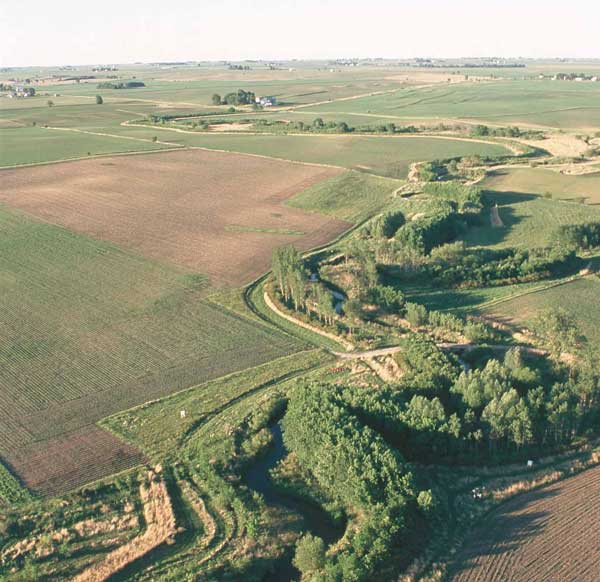Teaming for Interdisciplinary Research Pre-Seed Program
Combining terrestrial and aquatic perspectives to advance our understanding of ecosystems

Combining terrestrial and aquatic perspectives to advance our understanding of ecosystems

Earth supports one ecosystem whose conditions and dominant processes vary spatially but are continually connected by flows of inorganic matter, organic matter and organisms. For practical purposes, ecologists define biomes and draw boundaries around subsystems to constrain research questions and make models manageable. However, these boundaries can also constrain perspectives and may even dictate results. For example, in stream ecology it is a rule that forested headwater streams are heterotrophic, but this is a consequence of defining boundaries to exclude the riparian forest. In terrestrial biogeochemistry, a long-standing focus is on the mechanisms that replenish elemental losses to enable homeostasis (inputs=outputs). But hydrologic losses from terrestrial ecosystems are gains to aquatic ecosystems, and we rarely consider how fluxes of elements affect integrated ecosystem response. E.P. Odum famously said that the ecosystem is greater than the sum of its parts. We suggest that we are missing the emergent properties of integrated ecosystems by studying their parts, rather than the whole.
We propose that many ecosystem ecology questions and topics could benefit from bridging boundaries to combine aquatic and terrestrial perspectives. Some examples could include:
- Carbon and nutrient dynamics, budgets, and fluxes in hillslopes & headwaters.
- Looking at stream and riparian invertebrates as a single community, rather than separate communities with episodic fluxes.
- Treating the stream/riparian corridor as a unified metabolic unit, with riparian vegetation part of the stream ecosystem, rather than as a source of inputs into the stream ecosystem.
We propose to shift from the current compartmentalized perspective to a holistic approach in which a watershed (the stream and all the lands that drain to it) is treated as a single integrated system. Such a perspective could also accommodate the natural fluidity in boundaries between terrestrial and aquatic systems, which traditionally have been treated as static. We hypothesize that this approach will yield novel insights that are not obvious from the existing framework. We plan for a series of online meetings followed by an in-person retreat in the latter half of 2021 to develop these ideas and to produce (1) a concept paper that will include specific hypotheses for publication in a high-profile ecological journal, and (2) a proposal for external funding from the National Science Foundation to test these hypotheses.
Team Lead
Seth Wenger
School of Ecology
swenger@uga.edu
Team Members
Nina Wurzburger
School of Ecology
Rhett Jackson
School of Forestry and Natural Resources
Rebecca Abney
School of Forestry and Natural Resources
Raven Bier
Savannah River Ecology Laboratory
Krista Capps
School of Ecology
Nandita Gaur
Department of Crop and Soil Sciences
